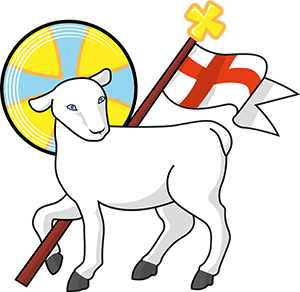Computing
At St John’s Primary School, we recognise that digital technology is an integral part of everyday life at home, in school, and in the wider world. Children are growing up in a rapidly changing society where computing is at the forefront, and it is our responsibility to prepare them for this future.
We aim to ensure that all pupils, regardless of background, are equipped with the skills to use a range of technologies confidently and creatively to enrich their learning across the curriculum. Their knowledge and skills will be developed to a level that prepares them for the next stage of their computing education.
Our curriculum also places strong emphasis on teaching pupils how to act as responsible online citizens. Children learn how to stay safe online, protecting their own wellbeing and that of others. Alongside this, they are equipped with the digital literacy skills needed to express themselves, develop ideas, and apply knowledge through both information technology and computer science.
These aims are underpinned by our Core Christian Values of Compassion, Creativity, and Courage, which guide everything we do at St John’s and enable our children to thrive both now and in the future.
The computing curriculum at St John’s reflects the aims of the National Curriculum Programme of Study. It builds progressively on key computing skills across the school and recognises that ICT can be taught both as a discrete subject and woven into cross-curricular learning.
-
Many skills are transferrable, providing rich opportunities across subjects including Art, D&T, Maths, Geography, Science, Music, and Literacy.
-
Units of learning are taught half-termly, either through weekly lessons or blocked sessions to allow for larger projects.
-
Teaching is predominantly whole-class, supported by differentiation, with pupils often working in pairs to promote communication and cooperation.
E-safety is a central strand of our provision. Pupils learn about:
-
Keeping personal information private
-
Trusting people and sources online
-
Treating others online as they would in real life
-
The implications of posting images online
-
What to do if they feel uncomfortable online
Key events such as Safer Internet Day are used to reinforce these messages across the school community.
In Early Years, ICT is taught fluidly through the curriculum and embedded in continuous provision. Children use iPads to take photographs, scan barcodes, and explore technology through torches, a Tonie audio box, and remote-controlled cars. They also recognise technology in the wider school environment through ICT spotting walks.
Children Key Stage 1 and 2 have access to a bank of laptops to support their learning. We use the Teach Computing Curriculum alongside software such as Bug Club, Charanga, and TT Rockstars to enhance teaching and learning. Interactive whiteboards in every classroom are used daily to further enable and enrich learning.
Pupils show enthusiasm and positive attitudes towards computing. They are proud of their outcomes and can articulate the relevance of their learning both across the curriculum and in their lives outside school. Well-planned units provide clear models, enabling pupils to make strong progress in developing and applying skills.
Through computing, we want children to:
-
Enjoy learning and feel confident in their computing skills
-
Discuss their progress and learning with clarity and pride
-
Become reflective learners who evaluate their work thoughtfully
-
Showcase their developing skills across the computing curriculum
-
Share their learning in a variety of creative ways
-
Leave school as safe, competent users of technology with a secure understanding of how it works
-
Know how to use the internet responsibly, stay safe online, and seek support when needed
-
Express themselves creatively through digital media and apply their skills to future challenges
What our children say:
“Computing is fun!” – SC, Year 1
“You get to play games and do TT Rockstars which really helps your maths.” – HM, Year 3
“I enjoyed using Scratch to do coding and programming.” – TR, Year 6
Useful websites for advice:
https://www.ceopeducation.co.uk/parents/
https://www.childnet.com/parents-and-carers/
https://www.internetmatters.org/
https://www.gocompare.com/broadband/parental-controls/
Useful websites to improve your child's knowledge and skills at home:
